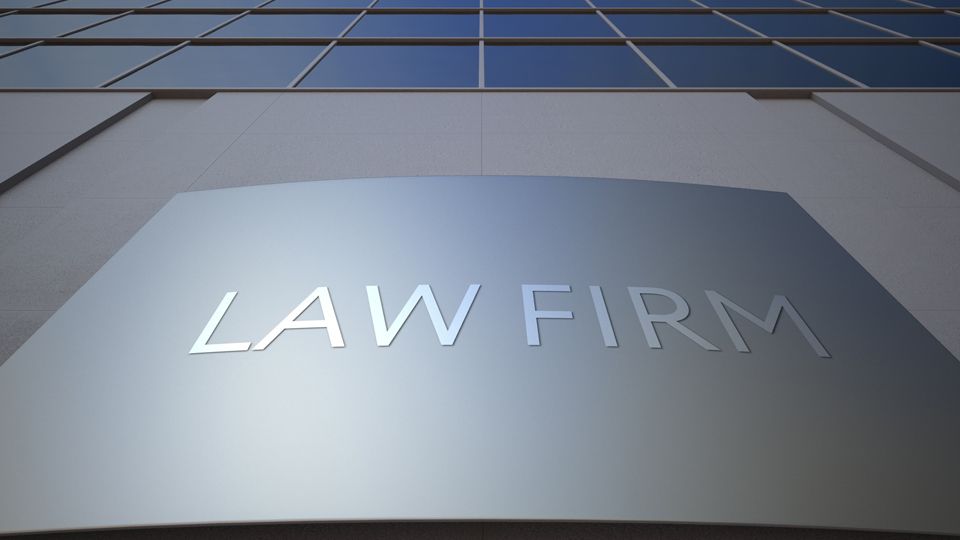
A large law office is unofficially defined by how many employees it has: There are small-firm practice groups who work hard without any supervision from higher ups while others have international reach; medium sized organizations transact major transactions between companies of different sizes (think mergers); then there’s also Biglaw salary scale.
At the start of a term in law school, students aspire to earn within the salary scale that somehow allows a lawyer achieve financial independence and eliminate student loans. They work hard to earn the best grades in order to quality for the biglaw salary scale closely.
Lawyers are paid according to the Cravath scale, which was designed for New York lawyers and guarantees them a set wage even if their client base varies. All associates on this pay grade can expect bonuses every year as well--and these payments will be evenly distributed among everyone in line with what they would've earned had you worked more hours or taken vacation days during that period.
The Cravath scale has been a major force in the world of compensation and the biglaw salary scale, and it's no surprise it has dictated salary trend for decades even surpassing previous salary scales. Associates monitor changes closely because Milbank or Simpson Thacher may have taken lead on salary increases for lawyers lately but there still isn't much variation among the Biglaw when you look at their average pay rates per position--corporate law workers will see an increase from year-to date and inflation adjusted dollars.
It would be a topic in law school that upon graduation, prospects for small to medium and the bigger prominent firms will come pouring in. The competition for top law students has been so fierce that it's resulted in a sort of bidding war. If one firm offers higher salaries, most BigLaw groups will soon follow suit because they know how important hiring talented individuals from top law schools with excellent grades and LSATs can be to their success.
What Is A BigLaw Firm?
The salaries at these organizations can be quite high. But what do "BigLaw" really mean? A large majority of law firm partners in America are compensated over $1 million per year, so these companies come with an expectation that you will make more than your average attorney does. The largest law firms in the United States are in "BigLaw" .
For the most part, BigLaw is almost entirely composed of lawyers who graduated at the top of their class at prestigious universities and best law schools. The best law students are generally smart, hardworking people who end up with high-paying jobs that they love. The majority of lawyers surveyed said they would not take a 10% pay cut to work in another environment. These lawyers knew the most biglaw firms' associate salaries.
The most prestigious and highest-paying jobs, require the best and most elite attorneys. The lack of elite talent in other areas drives up demand for these top lawyers and at times tops the current biglaw salary scale.
What Is The Cravath Pay Scale?

One of the most important things you should know before joining a BigLaw is determining salaries. The Cravath Scale is a system used by law firms to determine the salaries of new associates at their firms. This system was developed in the 20th century by Paul Cravath of the Cravath Swaine& Moore LLP of New York City. Cravath devised this pay scale in order to attract and retain the top lawyers at that time. These days it serves as a benchmark for other firms that follow the traditional BigLaw model.
The first step in calculating your first year associate salaries is comparing your class rank and school with the current associate pay scale. At times associate bonuses would be given and some lawyers manage receive to the same market bonus as their other in house peers as in the past few years, thanks to their generous superiors who may have biglaw investor funding.
The most common salary range for attorneys with 0 to 2 years of experience is $160,000 to $190,000. The second-year range goes from $170,000 to $215,000 and the third-year range goes from $185,000 to $265,000.
However, there are other factors that play into the current biglaw salary scale. For example, NYC firms tend to offer their new associates a higher salary than firms located elsewhere. Even if you do not receive any bonuses, your salary will increase each year based on where you are on the Cravath scale. It is a rule that all BigLaw firms generally follow.
However, not all in the BigLaw follow the Cravath scale, which is a system of lockstep associate compensation based on the number of years out of law school and paid to New York lawyers working at Cravath. One example is Latham & Watkins, a prominent global firm founded in California. At Latham & Watkins, one of the nation's largest law firms, the salary scale starts at $152,500 for first-year associates and tops out at $350,000 after those 12 years have been completed.
Firms use the Cravath scale as a starting point to determine new associate salaries and associate special bonus to those deserving.
What Law Firms Follow The Cravath Scale?
In the past, the Biglaw salary scale was determined by the offices of major law firms such as Jones Day, Skadden, etc. Associates working in "secondary" markets such as Los Angeles, Chicago or Houston were not initially paid these salaries. Although the Cravath scale has changed over time, most first-time associates at large national firms can expect their base salary to be the same as their counterparts in other local offices in the United States.
Mid-level and senior associate salaries have seen the most change over the past two years. Firms have increased salaries for mid-level and senior associates disproportionately (i.e. more) as they struggle to retain talent and some are forced to announce salary increases shortly.
What Is The BigLaw Bonus Scale?

Additionally, Biglaw associates working in the industry can expect to receive the same annual bonuses and summer bonuses as their peers based on the market bonuses set by leading firms. The ability to receive a bonus depends on meeting certain billable hour targets at your firm (although not every firm requires a minimum). If you are able to meet or exceed your billable hour targets, then you will be eligible for the bonus.
How Are Cravath Bonuses Set Each Year?
A Biglaw firm announces its year-end bonuses via a memo sent to associates in late November or early December. Cravath, Swaine & Moore LLP usually make the announcement first, but not always.
When the bonus announcement is made (or will be made in the future), Cravath's partners generally expect to meet every Monday during lunch. This means that Cravath's bonus announcement is almost always made after the weekly meeting on Monday afternoon. Once the Cravath bonus memo is released, it will be posted on a legal news website like Above the Law, the New York Law Journal, or American Lawyer.
No matter which law firm announces the first associate bonus for a given year, there is usually some suspense regarding whether other firms will match the bonus scale or potentially offer more money as against historical biglaw associate salaries. If a law firm announces before Cravath or if it announces a bonus scale higher than Cravath, firms typically quickly consolidate around the top of the market for that year's bonus scale.
In recent news, Cahill Gordon & Reindel has released its annual bonus memo on an inflation adjusted basis, and while it follows the market for its year-end bonuses, another set of bonuses could be considered above it. Currently, no other firm includes the Class of 2021 in its bonuses. Nonetheless, with the pay scale paid, associates could be happier.
The Cahill firm is known for giving its associates a little extra on top, and the market usually does not move. However, in a year like this, when the lateral market is booming, these money moves would actually matter. In the past few years, Cahill's most junior associate compensation is within the range of $6,000 for special bonuses, while the firm's most senior associates will receive $37,000 in special bonuses. This is the first time that any firm has offered stub-year bonuses to its employees.
Will this be enough to reset the market for special bonuses? Let’s wait and see.
Conclusion
Biglaw firms offer a salary scale that pays associates and tops out at $350,000 after those 12 years have been completed. In the past, the Biglaw salary scale was determined by offices of major law firms such as Jones Day, Skadden, etc., but now associate salaries are mostly equal across national markets in the United States. Mid-level and senior associate salaries have seen change over time with increases disproportionate to first-year associates due to retention issues.
Additionally, Biglaw Associates working in the legal industry can expect annual bonuses (and summer bonuses) based on market rates set by leading firms with eligibility depending on meeting certain billable hour targets which are not always needed. For those that meet or exceed these targets, a bonus can be expected. The Cravath system is a method of determining year-end bonuses for associates and it works as follows: A Biglaw firm will announce its year-end bonus via a memo sent to Associates during late November/early December. Cravath, Swaine & Moore LLP usually announces first, but not always.
About Harrison Barnes
Harrison Barnes is a prominent figure in the legal placement industry, known for his expertise in attorney placements and his extensive knowledge of the legal profession.
With over 25 years of experience, he has established himself as a leading voice in the field and has helped thousands of lawyers and law students find their ideal career paths.
Barnes is a former federal law clerk and associate at Quinn Emanuel and a graduate of the University of Chicago College and the University of Virginia Law School. He was a Rhodes Scholar Finalist at the University of Chicago and a member of the University of Virginia Law Review. Early in his legal career, he enrolled in Stanford Business School but dropped out because he missed legal recruiting too much.
Barnes' approach to the legal industry is rooted in his commitment to helping lawyers achieve their full potential. He believes that the key to success in the legal profession is to be proactive, persistent, and disciplined in one's approach to work and life. He encourages lawyers to take ownership of their careers and to focus on developing their skills and expertise in a way that aligns with their passions and interests.
One of how Barnes provides support to lawyers is through his writing. On his blog, HarrisonBarnes.com, and BCGSearch.com, he regularly shares his insights and advice on a range of topics related to the legal profession. Through his writing, he aims to empower lawyers to control their careers and make informed decisions about their professional development.
One of Barnes's fundamental philosophies in his writing is the importance of networking. He believes that networking is a critical component of career success and that it is essential for lawyers to establish relationships with others in their field. He encourages lawyers to attend events, join organizations, and connect with others in the legal community to build their professional networks.
Another central theme in Barnes' writing is the importance of personal and professional development. He believes that lawyers should continuously strive to improve themselves and develop their skills to succeed in their careers. He encourages lawyers to pursue ongoing education and training actively, read widely, and seek new opportunities for growth and development.
In addition to his work in the legal industry, Barnes is also a fitness and lifestyle enthusiast. He sees fitness and wellness as integral to his personal and professional development and encourages others to adopt a similar mindset. He starts his day at 4:00 am and dedicates several daily hours to running, weightlifting, and pursuing spiritual disciplines.
Finally, Barnes is a strong advocate for community service and giving back. He volunteers for the University of Chicago, where he is the former area chair of Los Angeles for the University of Chicago Admissions Office. He also serves as the President of the Young Presidents Organization's Century City Los Angeles Chapter, where he works to support and connect young business leaders.
In conclusion, Harrison Barnes is a visionary legal industry leader committed to helping lawyers achieve their full potential. Through his work at BCG Attorney Search, writing, and community involvement, he empowers lawyers to take control of their careers, develop their skills continuously, and lead fulfilling and successful lives. His philosophy of being proactive, persistent, and disciplined, combined with his focus on personal and professional development, makes him a valuable resource for anyone looking to succeed in the legal profession.
About BCG Attorney Search
BCG Attorney Search matches attorneys and law firms with unparalleled expertise and drive, while achieving results. Known globally for its success in locating and placing attorneys in law firms of all sizes, BCG Attorney Search has placed thousands of attorneys in law firms in thousands of different law firms around the country. Unlike other legal placement firms, BCG Attorney Search brings massive resources of over 150 employees to its placement efforts locating positions and opportunities its competitors simply cannot. Every legal recruiter at BCG Attorney Search is a former successful attorney who attended a top law school, worked in top law firms and brought massive drive and commitment to their work. BCG Attorney Search legal recruiters take your legal career seriously and understand attorneys. For more information, please visit www.BCGSearch.com.
Harrison Barnes does a weekly free webinar with live Q&A for attorneys and law students each Wednesday at 10:00 am PST. You can attend anonymously and ask questions about your career, this article, or any other legal career-related topics. You can sign up for the weekly webinar here: Register on Zoom
Harrison also does a weekly free webinar with live Q&A for law firms, companies, and others who hire attorneys each Wednesday at 10:00 am PST. You can sign up for the weekly webinar here: Register on Zoom
You can browse a list of past webinars here: Webinar Replays
You can also listen to Harrison Barnes Podcasts here: Attorney Career Advice Podcasts
You can also read Harrison Barnes' articles and books here: Harrison's Perspectives
Harrison Barnes is the legal profession's mentor and may be the only person in your legal career who will tell you why you are not reaching your full potential and what you really need to do to grow as an attorney--regardless of how much it hurts. If you prefer truth to stagnation, growth to comfort, and actionable ideas instead of fluffy concepts, you and Harrison will get along just fine. If, however, you want to stay where you are, talk about your past successes, and feel comfortable, Harrison is not for you.
Truly great mentors are like parents, doctors, therapists, spiritual figures, and others because in order to help you they need to expose you to pain and expose your weaknesses. But suppose you act on the advice and pain created by a mentor. In that case, you will become better: a better attorney, better employees, a better boss, know where you are going, and appreciate where you have been--you will hopefully also become a happier and better person. As you learn from Harrison, he hopes he will become your mentor.
To read more career and life advice articles visit Harrison's personal blog.





